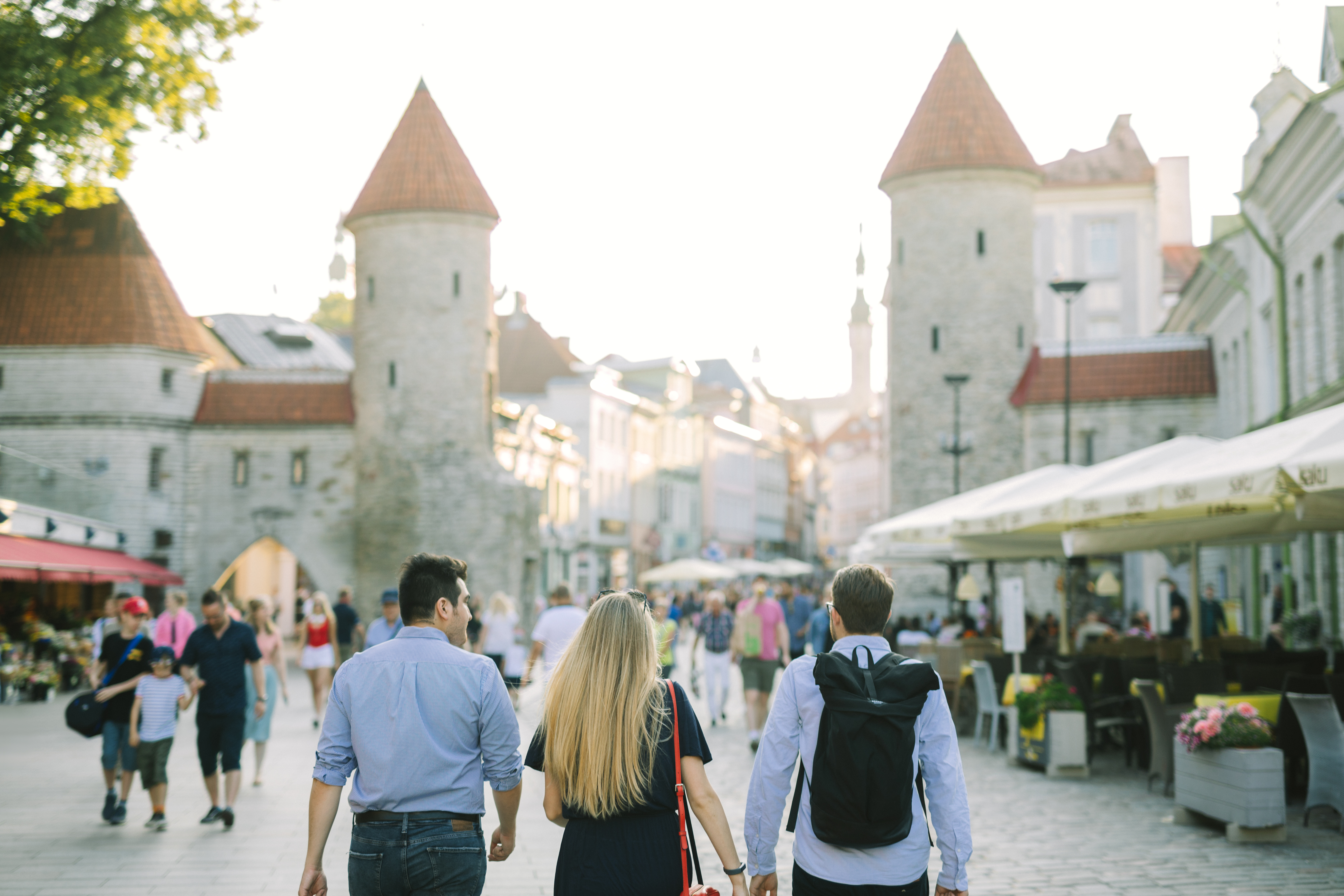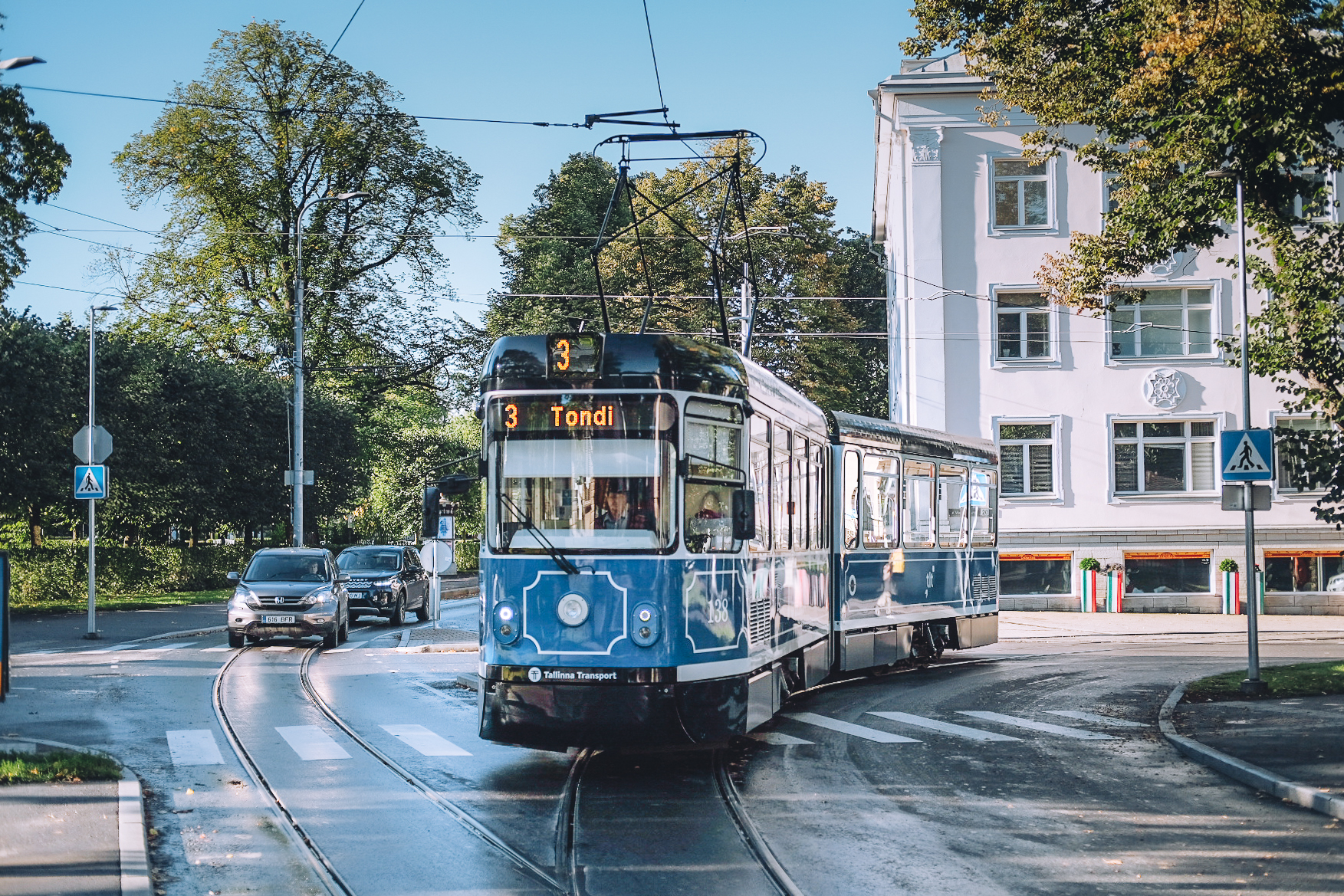
A sustainable roadmap for organising your event in Tallinn
Come and organise a sustainable event in Tallinn! We want the events in our city to be environmentally friendly and engaging. We aim to inspire both event organisers and participants to make informed and responsible decisions that support the sustainability of our city and planet.
In April 2022, the guide for conducting environmentally friendly events in Tallinn was completed. The guide sets out minimum requirements and recommendations for organising green events, which will help organisers of cultural and sporting events as well as conferences to make sustainable choices.
Sustainable event organisation principles include waste reduction, recycling, supporting local culture, and environmentally friendly choices in catering and transport.
Check out our guidelines and recommendations, share your success stories and take a step towards a more sustainable future!

Arriving to Tallinn
Explore on foot or use (free) public transport


Sustainable hotels
Sustainable convention centres and event venues
Sustainable organizers (PCO, DMC, EMC)
Sustainable restaurants
Estonian handicraft and reuse based companies
Conscious and unique experiences
Sustainable food and beverage tips
Find the right partners
Keep it local, organic and fair-trade
Provide tap water and skip the bottled
Reduce food waste
In order to minimise food waste, accurately calculate your attendance number and inform the caterers a few days prior to the event. If you still end up with excess food, arrange a donation to a local charity such as the Estonian Food Bank or find a food donation partner in the Toiduannetamine program in Estonia.
Avoid small packages
Events noted for their responsible behaviour
Tallinn Black Nights Film Festival (Pimedate Ööde filmifestival in Estonian), also known by its abbreviation PÖFF, is an international film festival held annually in Tallinn. The festival mainly focuses on live action movies, documentaries and animation and is one of the largest and most prestigious film events in Northern Europe.
The festival is organised following a number of sustainable principles, including:
- Reduction and sorting of waste: The organisers of the festival pay attention to waste reduction and recycling. There are different bins in the festival areas, allowing participants to sort their rubbish according to recyclable materials.
- Reusable materials: Reusable materials will be used to promote and decorate the festival, and the production of disposable posters and printed materials will be avoided.
- Digital solutions: The programme and other information will be distributed primarily in digital format, reducing paper waste and encouraging environmentally friendly choices.
- Local catering: The festival's catering partners will serve locally produced food and drinks, thereby supporting local food production.
- Public transport: The festival encourages participants to use public transport, by offering a variety of transport options to arrive to the festival sites.

Latitude59, which celebrated its 10th anniversary in 2022 and takes place in Tallinn, is the most important technology and start-up conference in the Baltics. The conference is attended by more than 2,500 participants a year, including over 300 investors, over 700 start-up representatives and a number of key industry figures. There is a range of themes that can be seen throughout the conference, such as diversity, sustainability, social impact, digitalisation, the application of science in business and cooperation with large companies.
What makes this event stand out:
- When setting up a partner/sponsor area or demonstration stand, it is strongly encouraged to design it to be reusable, or to use materials and elements that could be reused elsewhere or by others (e.g. walls, plants, furniture).
- The use of natural materials, instead of PVC, film and plastic, is encouraged. The use of disposable event mats, building materials, posters and design elements is not allowed.
- Waste is separated by type. To simplify sorting, containers are marked with different coloured labels. For example, the coffee providers will be asked to collect coffee grounds separately as bio-waste.
- Disposable materials, including leaflets and flyers, are not allowed. Also, the use of balloons, confetti or other disposable decorative elements is discouraged.
- Participants are encouraged to use public transport, walk or cycle.
- Only reusable or wooden cutlery can be used in the exhibition area. Caterers are also asked to not use biodegradable/compostable containers, disposable straws or paper parasols in the exhibition area.
- Food donations are made via Fudloop or Food Bank.
- Free drinking water is available to all and the sale of bottled water is not allowed.
- The City of Tallinn provides free public transport for delegates.

Be an informed participant
Here are some suggestions on how you can behave in a sustainable way.
10 recommendations for an environmentally sustainable event participant:
- Try to get to the event by public transport or by bike.
- Or come on foot - it's best for your health!
- If you really need a car, share your ride. Don't drive alone!
- Don't take reusable cups or other dishes home! You'll be able to use it again at the next event.
- Even better: bring your own water bottle! Clean water is available on-site!
- Separate different types of waste: packaging, paper and cardboard, biowaste, solid household waste. It would be even better if you didn't create any waste at all.
- Use electronic tools – the event ticket, programme, etc. are also on your phone.
- Consume wisely! Take as much as you want, but only as much as you need.
- Choose local!
- Be respectful and kind to other people and nature!
































































